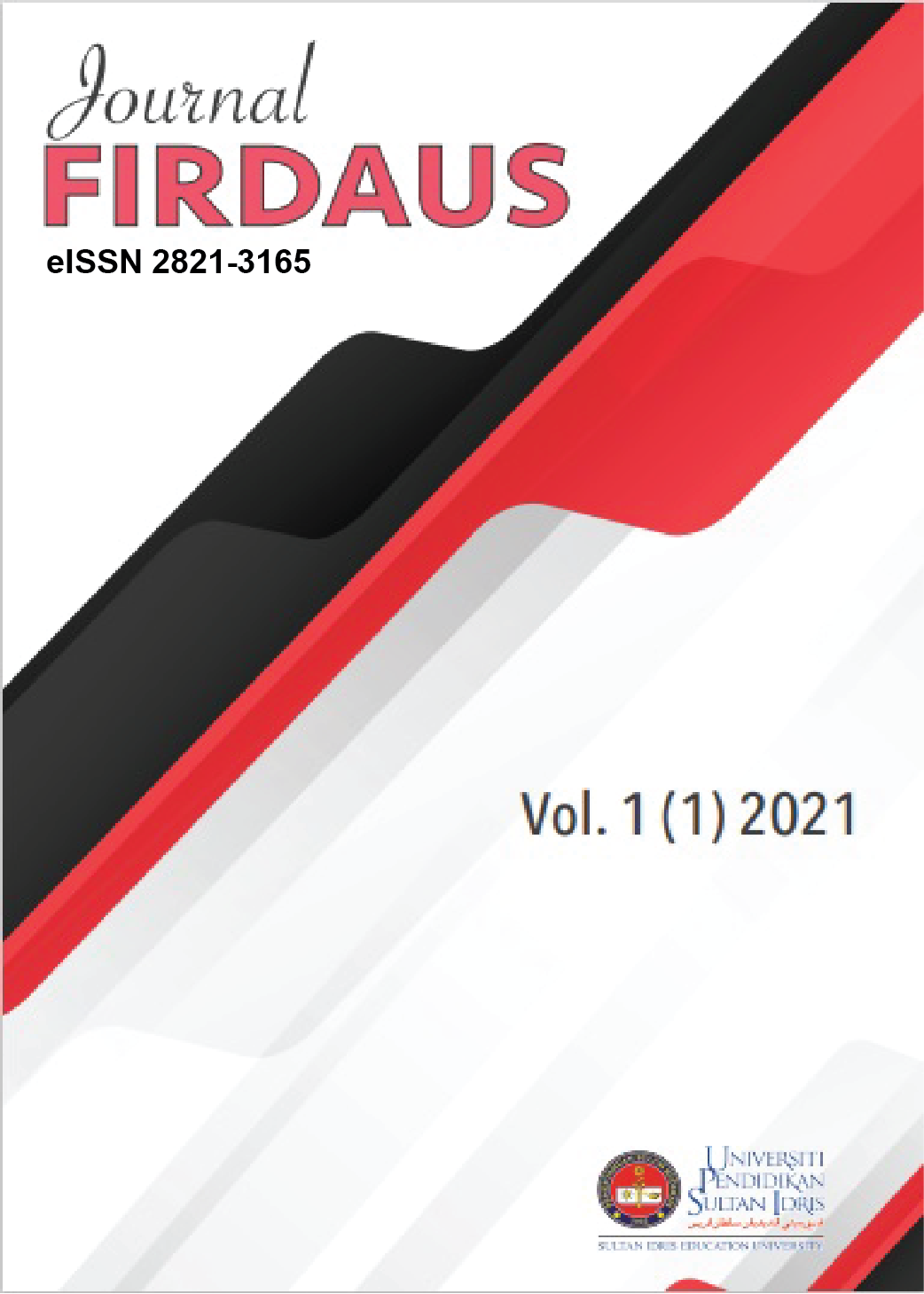The Islamicity of the Lanao Sultanate Practices on Land Grant with Special Reference to the Political Thought of al-Māwardī on Land Grant
DOI:
https://doi.org/10.37134/firdaus.vol1.1.8.2021Keywords:
Lanao Sultanate, land grant, Islamicity, Maranaos, MindanaoAbstract
The Muslim Maranaos in Mindanao, Philippines established the Lanao Sultanate in 1616 and it continues until today as a traditional governance. It shows that there is a sizeable research gap on the Lanao Sultanate practices on land grant, moreover, the Islamicity of Lanao Sultanate practices on land grant has been little represented in the Philippines literature, in fact, there is not a single published paper focusing on this subject. Thus, this research will explore the Lanao Sultanate practices on land grant with special reference to the political thought of al-Māwardī to establish the Islamicity of Lanao Sultanate practices on land grant. Abū al-Ḥasan ‘Ali Ibn Muḥāmmād Ibn Habīb al-Māwardī was born on 972 C.E. in Basra, Iraq. He worked as a qādī (judge), and juridical adviser at the court of the caliph al-Qa’im. He has immense knowledge on fiqh (Islamic jurisprudence), Qur’ān interpretation, religion, government, public and constitutional law, language, ethics, and belles-letters. Al-Māwardī wrote a book al-Aḥkām al-Sultāniyyah w’al-Wilāyāt al-Dīniyya (The Ordinances of Government) in the 10th century. He set out his theory of government and the rights and duties of the ruler and the rules of delegated authority. In this book, he also discussed land grant and concessions.
Downloads
References
Al- Hilāli, M. T. & Khan, M. M. (1999). Translation of the Meanings of the Noble Qur’ān in the English Language. Madinah: K.S.A. King Fahad Complex for Printing of the holy Qur’an, 1427. A.H.
Abreu, L. M. & Dela Rosa, R. J. (2003). “Self-Determination & Social Justice: Agrarian Reform in the Autonomous Region in Muslim Mindanao,” Mindanao Focus Journal (3).
Al-Māwardī. (1996). The Ordinances of Government, Al-Aḥkam al-Sulṭaniyya w’al-Wilāyāt al-Dīniyya, translated by Wafāa’ H. Wahba. UK: Garnet Publishing Ltd.
Al-Māwardī. (1853). Al-Aḥkām al-sulṭāniyya (d.449/1058). Edited by Maximilianus Enger as: Maverdii Constitutiones Policae. Bonn: Adolp Marcus.
Bannerman, P. (1988). Islam in Perspective, A Guide to Islamic Society, Politics and Law. London & New York: The Royal Institute of International Affairs.
Brecht-Drouart, B. (2011) “Between Re-traditionalization and Islamic Resurgence. The Influences of the National Question and the Revival of Tradition on Gender Issues Among Maranaos in Southern Philippines.” Ph.D. Thesis, Goethe Universität, Frankfurt Am Main.
Cahen, C. (1970). L ‘Islam des origines au debut de l’empire Ottoman. Paris: Bordas.
Fianza, M. L. (2004). “Land Ethnicity and Gender in Muslim Mindanao. Focus on Maranao Moro Women.” Mindanao Focus, (3), 3-43.
Gowing, P. G. (1979). The Muslim Filipinos, Heritage and Horizon. Quezon City, Philippines: New Day Publishers.
Hamid, E. A. (2011). Al-Mawardi’s Theory of State in the book Islamic Political Thought and Governance, Critical Concepts in Political Science. London & New York, Routledge, Taylor & Francis Group.
Hadji Abdul Racman, S. M. (2020). “The Political Legitimacy of Lanao Sultanate in the 17th Century with Special Reference to the Political Theory of al-Māwardī.” Ph.D. Thesis, Universiti Brunei Darussalam.
Hadji Abdul Racman, S. M., Shah, H. S.; Ayaz, M. & Ullah, K. (2020). “The Lanao Sultanate in the 17th Century Zakāt System with Special Reference to the Islamic Perspective of Al-Māwardī.” International Journal of Islamic Economics and Governance (IJIEG). Minhaj University, Lahore, Pakistan, Vol. 1, (1) Special Issue. 46-64.
Hadji Abdul Racman S. M. (2018). “The Islamicity of Lanao Sultanate, Philippines in the 17th Century as a State.” International Journal of Sciences: Basic and Applied Research, Vol. 42, (3) 205-230.
Khan, M. Q. (1963). “Al-Mawardi,” A History of Muslim Philosophy. Edited by M. M. Sharīf. Wiesbaden: Otto Harrasowitz.
Laarhoven, R. (1986). “We are Many nations: The Emergence of Multi-Ethnic Maguindanao Sultanate.” Philippine Quarterly of Culture & Society 14, (1) 32-53.
Lingga, A. S. M. (2004). “Understanding Bangsamoro Independence as a Mode of Self-Determination” In Mindanao Journal, MSU, Marawi City, Philippines, (27).
Little, D. P. (2011). Islamic Political Thoughts and Governance, Critical Concepts in Political Science, Roots of Islamic Political Thought: Key Trends, Basic Doctrines and Development. Vol. 1. London & New York: Routledge, Taylor & Francis Group.
Macabando, S. M. (2008). Brief History of the Maranao Mindanao, Maranao Salsila (Genealogy) Their Origin. Vol. 1. Marawi City, Philippines: Marawi Sultanate League.
Macabando, S. M. (2005). Brief History of the Balindong Dynasty of the Dominion State (Sultanate) of Pangampongan-a-Masiu. Marawi City: Marawi Sultanate League.
Madale, A. T. (1996). The Maranaw Torogan. Manila: Rex Bookstore Inc.
Madale, N. T. (2002). Maranao. Manila: National Commission for Culture & the Arts.
Navarro, J.; Viloria E. & Alvino. Ma. C. (1989). The Philippines: History and Government. Quezon City, Philippines: Vibal Publishing House Inc.
Reeves, S.; Peller, J.; Goldman, J.; Kitto, S. (2013) Ethnography in Qualitative Educational Research: AMEE Guide No. 80, Medical Teacher, 35:8, DOI:10.3109/0142159X.2013.804977. Taylor & Francis Group.
Rosenthal, E. I. J. (1962). Political Thought in Medieval Islam, An Introductory Outline. Cambridge: Cambridge University Press.
Saber, M. & Tamano. M. M. (1986). “Decision-Making & Social Change in Rural Moroland”. Mindanao Journal. MSU Research Center, Marawi City (7) 1-4.
Saber, M. (1980). “Maranao Resistance to Foreign Invasion”, The Maranao Man by Maranao Men (4) non-periodical series. Mindanao Art and Culture, MSU Research Center, Marawi City.
Shafer, R. J. (1974). A Guide to Historical Method. Illinois: The Dorsey Press.
Tubangui, H. R. (1982). The Filipino Nation, A Concise History of the Philippines. Edited by Jim Haskins. Philippines: Grolier International Inc.





